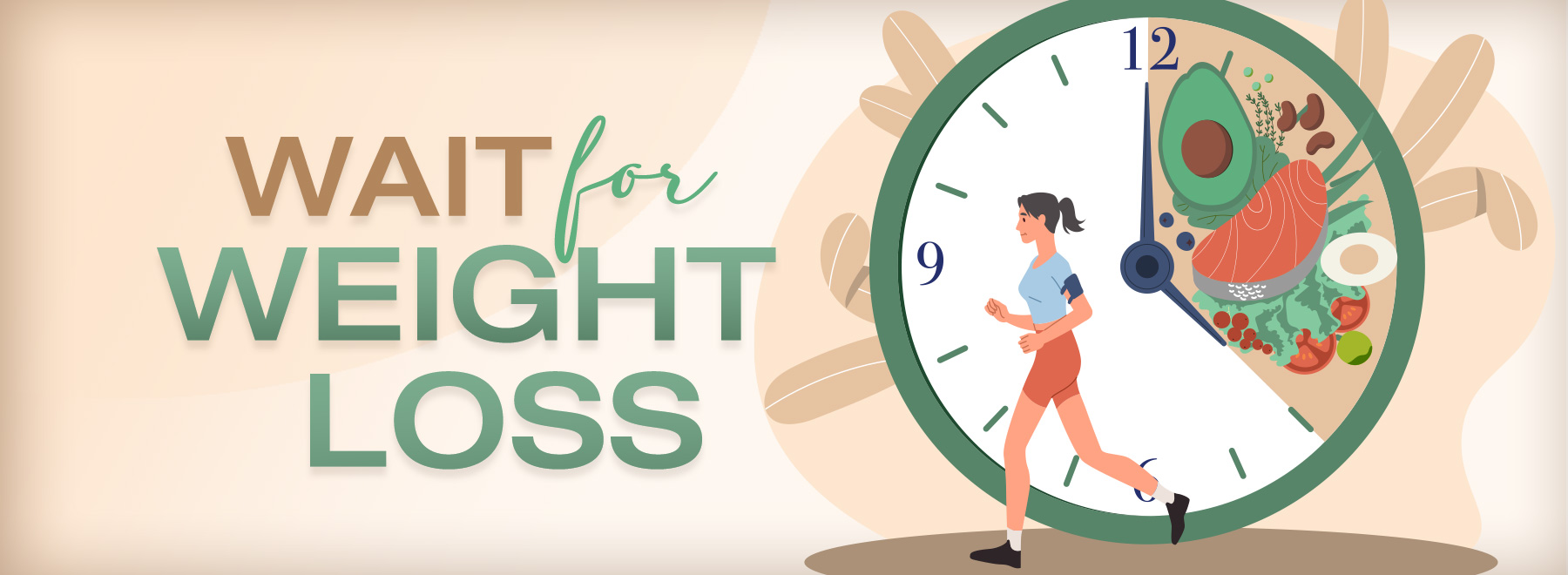Intermittent fasting: Worth the hype?
One of the most popular weight loss trends sweeping the country in recent years is intermittent fasting.
Unlike other diets that limit what to eat, intermittent fasting restricts when to eat. In a nutshell, those who choose that route abstain from eating or drinking anything but water for a prolonged period.
According to the Mayo Clinic, the three most popular ways to do IF are through alternate-day fasting, when dieters eat normally one day and completely fast the next day; 5 - 2 fasting, when they eat normally for five days a week and fast the other two; and daily time-restricted fasting, which means eating normally but only within an eight-hour window each day, such as skipping breakfast, and eating lunch around 11 a.m. and dinner by 7 p.m.
Many – including celebrities – have touted their success at shedding a lot of pounds relatively quickly, and, they say, rather easily.
But is it safe? And is it considered a best practice for weight loss?
University of Mississippi Medical Center nutrition and weight loss experts have mixed reviews.

Other than the potential of losing weight faster than with other diets, IF has gained popularity because it does not restrict food groups, can be easily incorporated into patients’ daily schedules and has been shown to have other health benefits, including lowering cholesterol and blood sugar levels, said Dr. Kimberly Bibb, an associate professor at the UMMC Weight Management Clinic. She is board-certified in family medicine and obesity medicine.
That said, Bibb is not an advocate of IF. That's because weight loss may not be sustained over time.
“When providing nutritional counseling for my patients, I usually recommend a dietary plan that is safe, effective, able to be sustained long-term, based on the patient's preferences and that facilitates adherence,” Bibb explained. “I usually advise patients to avoid eating late at night, avoid prolonged periods of fasting and avoid skipping meals.
“I don’t recommend extreme periods of fasting, but I will sometimes recommend an overnight fasting period, for example from 7 p.m. to 7 a.m., and advise patients to eat three healthy meals and two healthy snacks with a specified calorie limit.”
Diagnosed with type 2 diabetes and high blood pressure in 2019, Ghanata Adams was in crisis. Standing 4 feet 10 inches and weighing 230 pounds, she knew it was time to act. A few months later, a friend told her about IF, and they embarked on the journey together.
Adams, 38, of Clinton, said she would eat nothing before noon or after 8 p.m. She started her mornings with unsweetened coffee, which curbed her appetite until lunch and drank plenty of water before lunch, which helped fill her up so that she ate smaller portions. She also hit the gym three days a week.
“I was getting discouraged at first because I couldn’t see the physical results I wanted to see,” Adams said. “But I kept at it because I saw an improvement in my energy levels and wasn’t sluggish all the time. The bad part about intermittent fasting is trying to adjust to not eating early in the morning. I would have headaches and feel lightheaded in the mornings.” But that soon subsided.
Within a year, she’d lost 50 pounds.
People can drop pounds so quickly on IF because fasting can produce ketosis, meaning the body burns stored fat because it doesn’t have enough glucose for energy.
Though Bibb has seen patients’ success with IF, the results vary, depending on factors including the method used, duration of the fasting window, number of calories consumed during the eating window, weight and level of physical activity.

Rebecca Turner, registered dietitian nutritionist in the Lifestyle Medicine Clinic in the Department of Preventive Medicine, said dieters are attracted to IF because it has simplified the “rules” of the weight loss game.
“However, it is essential to note that just because something initiates weight loss doesn't mean it will last long term or be considered healthy,” Turner said. “Intermittent fasting isn't without risk.”
An essential risk is the potential of disordered eating, Turner said, which may include restrictive eating, compulsive eating or irregular or inflexible eating patterns, which can negatively impact mental and physical health. Another risk for otherwise healthy dieters is rebound eating that causes weight gain and sleep disturbances.
“The only practical thing about intermittent fasting is putting boundaries on when you can eat, which typically leads to a caloric deficit over the day. When you eat fewer calories than usual, you will initiate weight loss at the start. You can achieve this with modest and meaningful portion control without time-restricted eating.”
Turner warns that extreme IF dieters risk becoming undernourished, along with dehydration, muscle wasting, and vitamin and mineral deficiencies. It can also lead to clinical eating disorders.
“As a registered dietitian nutritionist, I do not recommend intermittent fasting. Here at the Lifestyle Medicine Clinic, if a patient chooses to incorporate intermittent fasting into their routine, I will support them and educate them, making sure their nutrient needs are met during their windows of eating,” said Turner. “However, suppose a patient is managing diabetes with medications or insulin. In that case, I will highly discourage the continuation of long periods of fasting as it can lead to dangerous lows, and large amounts of food at one time can lead to dangerous high blood sugar readings.”
Bibb agrees with the potential for risks. However, if a patient without significant health conditions chooses an IF plan that is not too aggressive and adheres to a healthy balanced diet under the supervision of a health care professional, it may be a safe short-term option, she said.
Because most of the research on effectiveness, safety and benefits of IF has been done on animals, more research is needed to understand the long-term safety and benefits in humans.
Some, for health reasons, should avoid IF all together: children, women who are pregnant or breastfeeding, those managing diabetes with medication and insulin, those with eating disorders and people over the age of 65.
For those who choose IF, to ensure healthy weight loss, Bibb advises eating nutritious foods, controlling portion sizes, and not overindulging on unhealthy, high-calorie foods during an eating window. Regular exercise is also important.
Another concern is maintenance because after a fasting period, many dieters tend to overeat and eat unhealthy foods, said Bibb.
“In order to maintain weight loss after doing an intermittent fast, it is important to be consistent with maintaining a healthy lifestyle, including eating a healthy diet, exercising on a regular basis, getting adequate sleep, and minimizing stressors.”
Three years after her IF journey, Adams has kept the weight off. “I do a light breakfast now, and the most important part is drinking water before my meals. So even when I’m not fasting, my water intake before meals keeps me at a moderate portion of food intake. Once my body adjusted to fasting, even when I’m eating normally and not fasting, my food intake is still in moderation.”
Before starting an IF, patients should consult with a health care provider or obesity medicine specialist to discuss whether it is an appropriate option and review any health concerns and potential health risks.
“Intermittent fasting shouldn’t be looked at as a jumpstart to weight loss,” said Turner. “Anytime you change habits and routines, and then revert back to a normal pattern of eating or living, you risk regaining or undoing all that was achieved.
“Learning to eat for the sake of health and not weight loss is the only long-term, time-tested method.”
For more information or for help managing your weight or overall health, reach out our experts.
Contact the Lifestyle Medicine Clinic at 601-984-2819 or here. Contact the Weight Management Clinic at 601-984-1285 or here.
The above article appears in CONSULT, UMMC’s monthly e-newsletter sharing news about cutting-edge clinical and health science education advances and innovative biomedical research at the Medical Center and giving you tips and suggestions on how you and the people you love can live a healthier life. Click here and enter your email address to receive CONSULT free of charge. You may cancel at any time.



